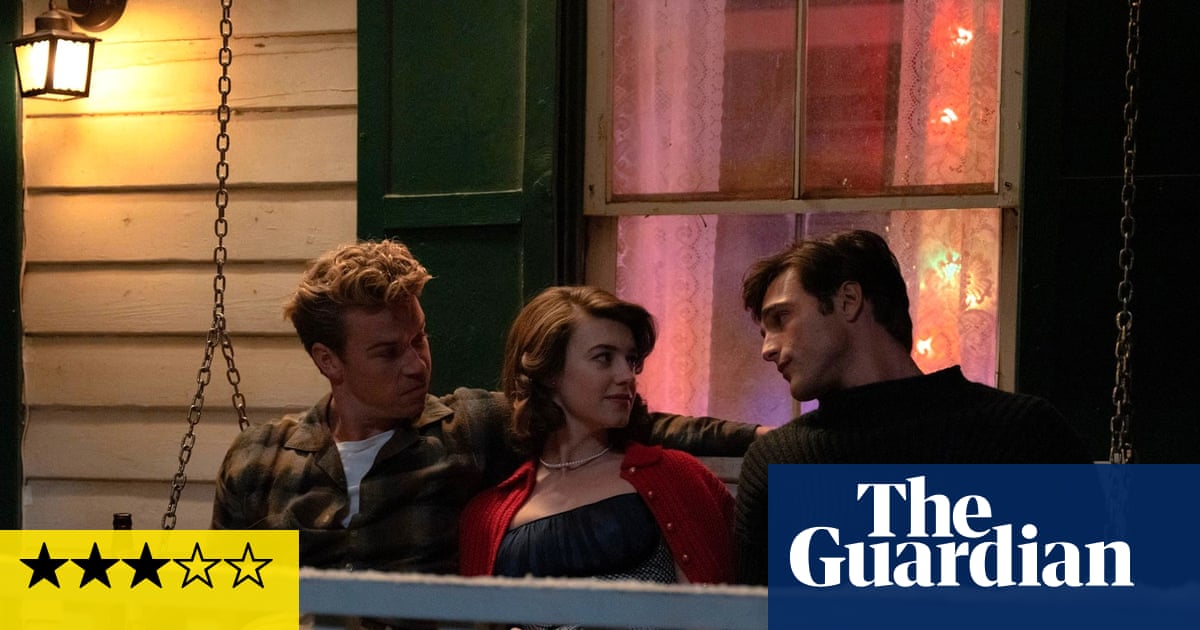
"Making a bid for awards credibility somewhat tentatively is this absorbing, detailed melodrama, adapted by screenwriter Bryce Kass from Shannon Pufahl's 50s-set 2019 novel. Kass begins with a narrative feint: after some dutiful lovemaking with husband Lee (Will Poulter), young bride Muriel (Daisy Edgar-Jones) spies Lee's studly drifter brother Julius (Jacob Elordi) sprawling shirtless on a station wagon outside, the playing cards in his pocket signifying trouble."
"Things aren't as hetero as they appear, however: Muriel is drawn to Julius for what he represents rather than who he is, cueing an atypical love triangle where the protagonists are mostly prised apart, and where the optimal outcome may well be for all concerned to pursue their own paths. Pufahl's intention, boosted here by longtime Todd Haynes producer Christine Vachon, is to flag that this moment in American life wasn't entirely as staid as we've been led to believe."
"Waitress Muriel gambles on racing tips from her regulars, before trysting with a sapphically inclined neighbour (Sasha Calle). Julius sells his body to fellow cardsharps and becomes a professional peeper, prowling a casino's eaves to spot blackjack cheaters. (Even here, the rising heat obliges him to lose the shirt.) Only Poulter's Lee, upright in flannel, clings to an older, squarer design for life, installing his wife in a little box on a California hillside yet he seems as destined for heartbreak as anyone."
Set in the 1950s, the melodrama follows young bride Muriel, her husband Lee, and Lee's drifter brother Julius as a complex love triangle unfolds. Muriel pursues risk and desire, gambling on racing tips and entering a sapphic affair with a neighbor, while Julius resorts to sexual and voyeuristic work in gambling circles. Lee embodies a more conventional postwar ideal yet faces heartbreak. The story foregrounds shifting identities beneath a placid postwar surface and suggests that separation and individual paths may be the healthiest outcome. The pacing and visual polish evoke premium-cable drama, at times feeling like a compressed miniseries.
Read at www.theguardian.com
Unable to calculate read time
Collection
[
|
...
]